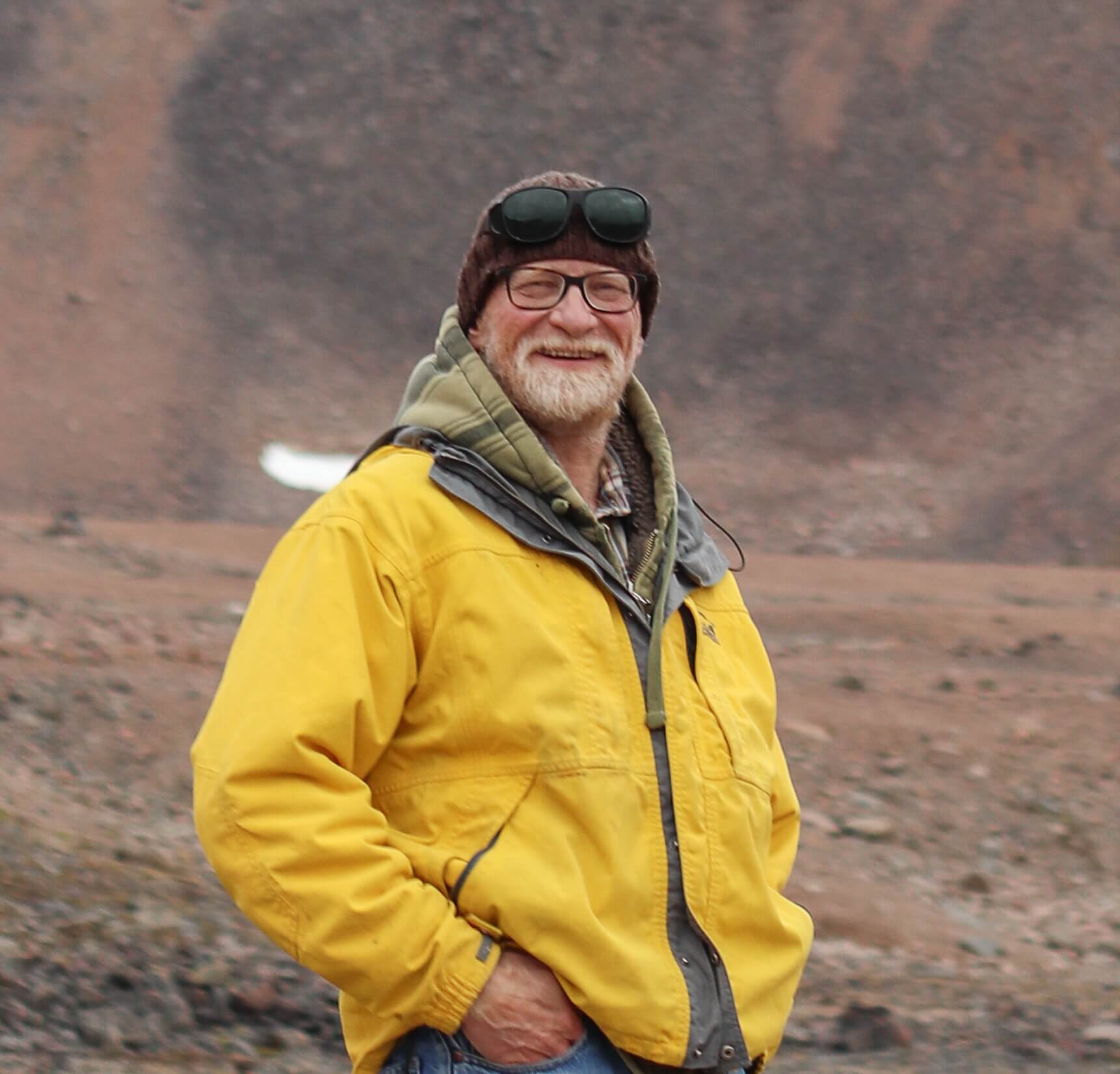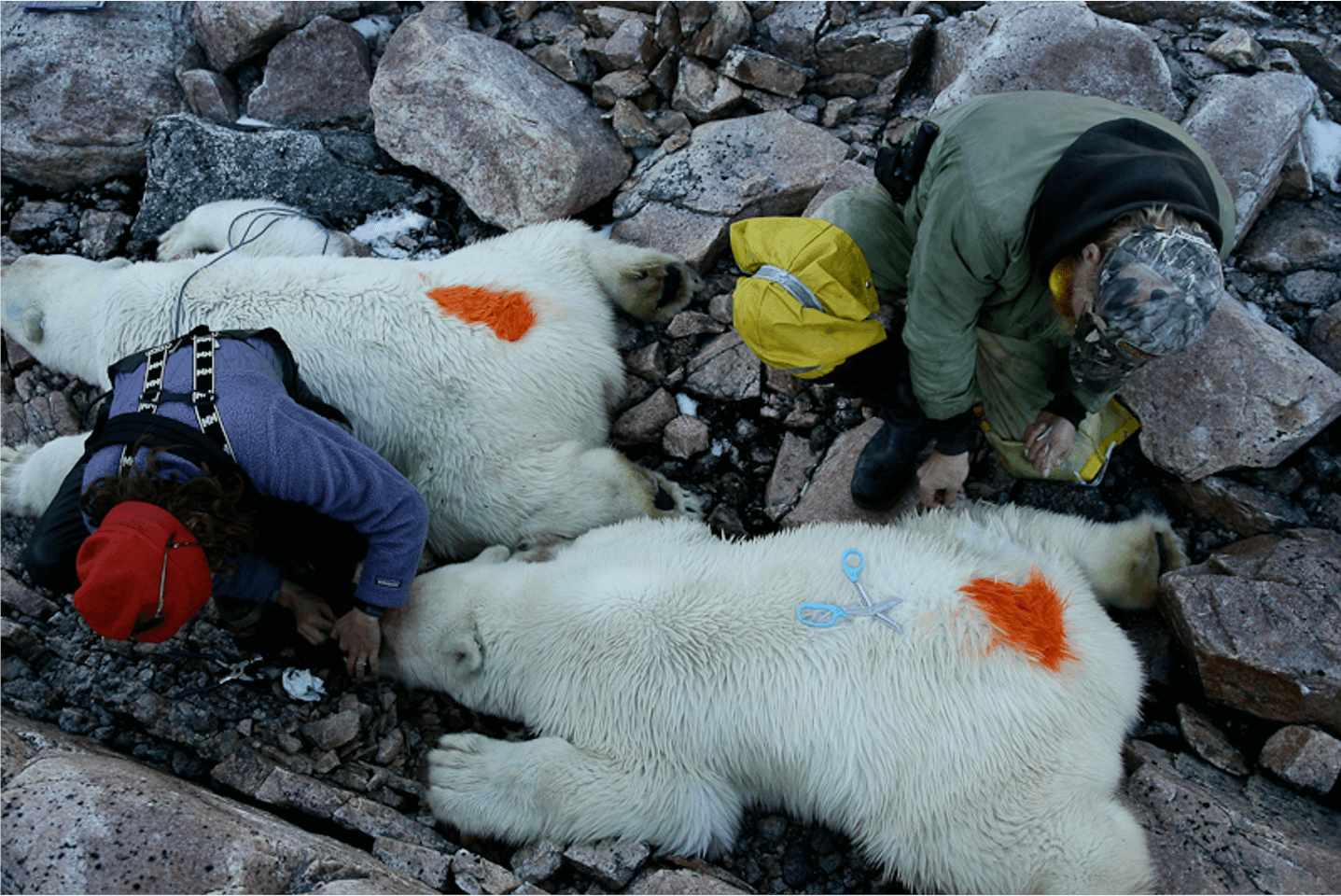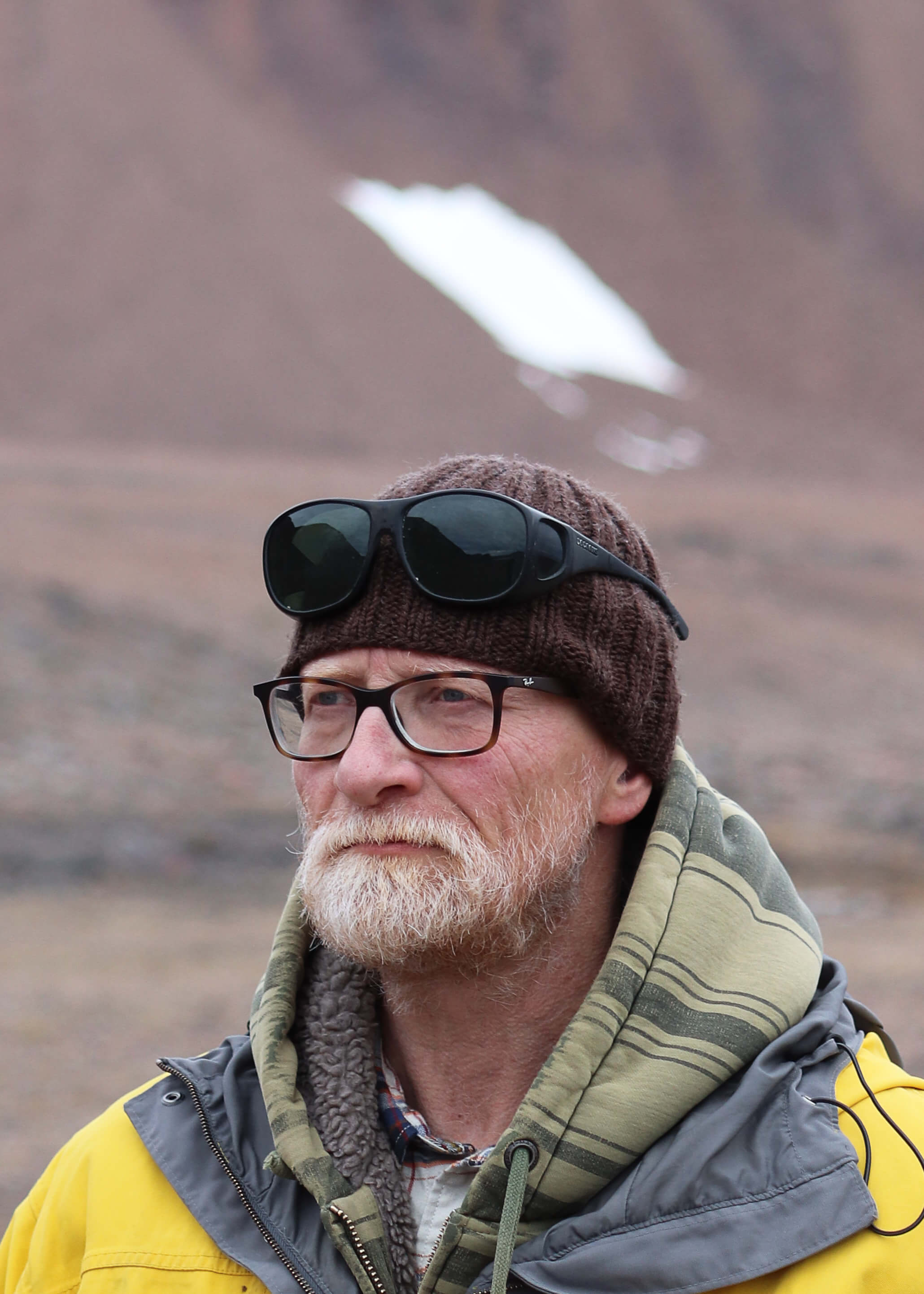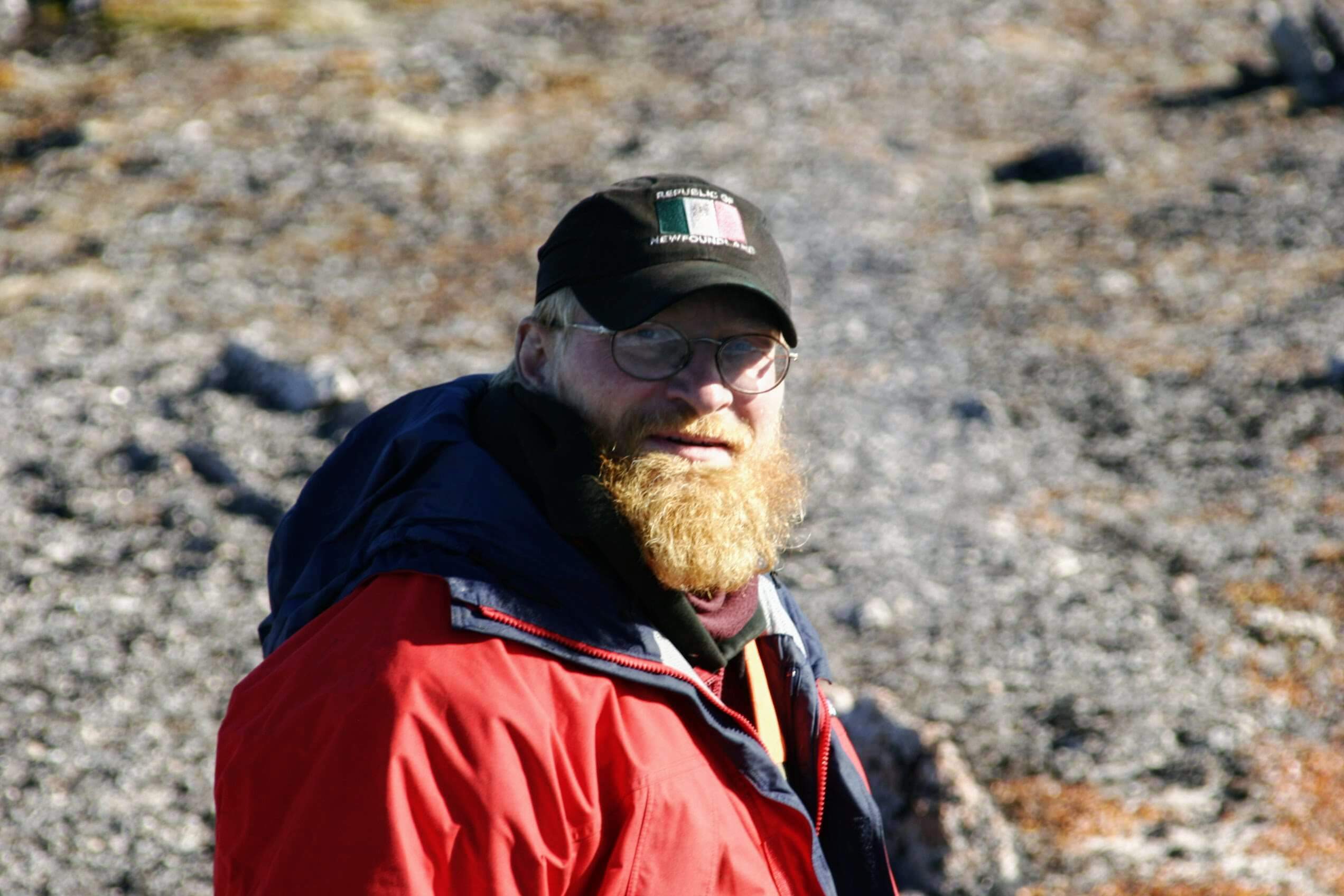
Markus Guido Dyck, polar bear biologist for the Government of Nunavut (Canada), died on April 25, 2021, at the age of 55 in a helicopter accident, along with a pilot and helicopter engineer. He was surveying polar bears over the frozen sea ice of Lancaster Sound.
Markus stood out in the Canadian North. He had a long distinctive beard, a German accent, and had become a fixture, not a visitor. He stood out among biologists, arriving on the international stage of polar bear research and management through grit, persistence, and talent.
Born in the small town of Riedlingen, Germany, Markus began his life working as a customs agent and later in the German military. In 1990, he was stationed at the German Army Training Establishment at the Canadian Forces Base Shilo in Manitoba. Markus fell in love with the wild of Canada, and on a final leave, he visited Churchill to see polar bears. It proved to be a life-changing experience.
Markus immigrated to Canada and chased the dream to study polar bears. In the 1990s he lived and worked in Churchill and volunteered at the Churchill Northern Studies Centre. He graduated from Brandon University with a bachelor’s degree in Zoology and completed his master’s degree in Natural Resource Management at the University of Manitoba. He spent summers on solitary field studies – observing polar bears catching char in the High Arctic, and observing polar bears observe tourists in Churchill.
After his studies, he worked as a technician for the Government of Nunavut with polar bears, for the Department of Fisheries and Oceans, and taught at the Nunavut Arctic College in the Environmental Technology program. During this time, he went on to publish backlogged data – analyzing the bacula of harvested bears to develop evolutionary hypotheses, and investigating those bears killed in defense of life and property to inform local wildlife management. He did not stray from controversy and wrote pieces on whether polar bears could survive a future with reduced sea ice, a few which garnered rebuttals by others, myself included. He was always honest in his views and assessments. This integrity allowed Markus to develop long, trusting relationships with stakeholders across the circumpolar North. Over the years, he developed a keen sense of comradeship with the people of the North. He found kindred friends and dogs and settled into the Arctic for decades.

I met Markus catching polar bears by helicopter in Davis Strait; he continued to work with me as a field technician in Nunavut. He would expertly orchestrate a year’s worth of logistics including caching hundreds of drums of helicopter fuel across the Canadian Arctic; he kept our bear handling equipment, drugs, and safety gear in a condition befitting a German soldier.
When Markus died in the tragic helicopter accident, he was Nunavut’s territorial polar bear biologist, a position which he had held since 2012. I held this position previously and know how well how Markus fit the environment and vice versa. It was in Markus that Nunavut found someone with the necessary unique combination: scientific knowledge, field know-how, and a staunch advocate for both polar bears and the Inuit people. His dedication created a consistency and institutional knowledge that is often lacking in Arctic wildlife management. He was able to represent Nunavut’s interests both with the Inuit Hunters and Trappers and at the international level in research, management, and policy. In this capacity, he published numerous, important assessments of polar bear population size and conservation status. He collaborated with a large array of scientists on studies ranging from food ecology to detection of bears via satellite imagery, from sophisticated genetic and toxicological assessments to changes in denning and habitat use over time.
Above all, Markus was an expert field biologist. He spent springs and summers at the top of the world doing the solitary work studying bear behavior for months at a time, and later sampling bears by helicopter for multitudes of studies and surveying bear populations. He spent winters with his dogs, crunching data, preparing for fieldwork and crisscrossing Nunavut talking with hunters.

When I worked with Markus, we knew that our fieldwork was dangerous, it was at the front of our minds as safety preparations constituted a large part of logistics. Markus was uncompromising when it came to safety. Down days were plentiful, waiting for safer weather, but we felt the work had to be done for the appropriate, science-based management and conservation of polar bears. We spent thousands of hours flying and ski-dooing across the landscape doing the work of polar bear research and management. As all friendships that develop in the field, we spent days in cabins waiting for the weather to clear talking about science and life. Drinking tea, playing cards, watching the fog and wondering if the spot on the side of the far hill would develop into a bear that would later visit the cabin. Markus once volunteered to sleep in a tent rather than our small one room cabin. He would rather face the polar bears outside than listen to the snoring herd made up of biologists, the pilot, engineer and hunters. But someone had forgotten to pack the electric safety fence, so he spent the afternoon stacking empty fuel barrels around his tent as an alert system made to tumble down in a cacophony in case of a marauding bear.
My fondest memory of Markus was on Akpatok Island, lying on our bellies peering over the cliffs down to the shallow turquoise water of Ungava Bay. We were sneaking up to look face to face with the thick billed murres, whose young were taking their first flights down to the mouths of the bears on the beach. We were waiting for the helicopter to return from the Quebec coast. An uneasy feeling, alone on an island full of bears. Waiting, wondering about the helicopter, checking our backs for bears. Markus, smoking (he later quit!) and joking.
Markus will be missed and would likely be surprised by the void he has left. Self-deprecating and humble, I don’t think he realized the impact his short life has had on the people that were lucky enough to befriend him. Nunavut and the Arctic has lost a fierce advocate for polar bears and the North, and a true and talented field biologist.
PBSG member Elizabeth Peacock MD PhD, with contributions by PBSG-member Martyn Obbard PhD and Jasmine Ware PhD
